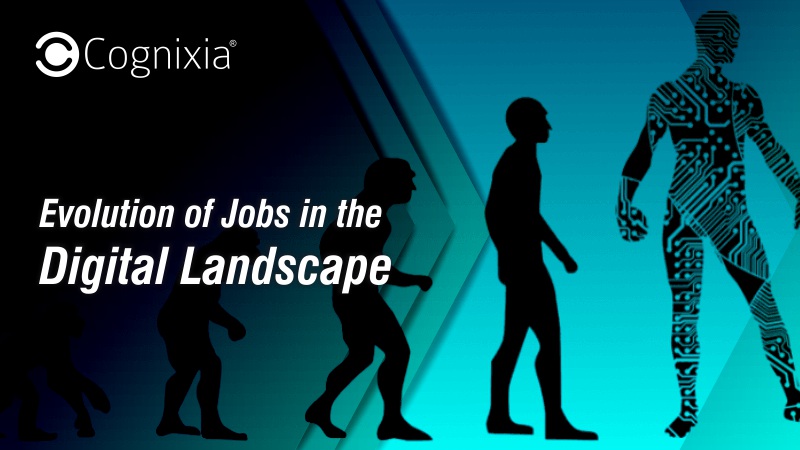The old backdrop of education and pursuing a career was set on a traditional model of completing a lifelong education and getting a stable job to create a lasting career. Since then, there has been a multitude of changes to how the society perceives a “job”. However, in the last couple of decades, the digital cyclone has erupted creating a seismic shift in how we plan our future. This eruption has resulted in a flash flood of technological advances which has set our early age evolution into a hyper-lapse resulting in the re-thinking of the workforce development programs, as well as a re-adjustment of skills.
Unlike the previous technological shift, this one will have a greater impact on the global workforce. We are now at the forefront of the age where society and employees envisage a world where automation and AI may render our jobs useless. It may be naive to believe that redundancy is inevitable but it is equally hopeless to believe that the quick pace, at which technology is advancing, will have no impact on the future workforce and jobs.

A mindset shift towards lifelong learning is the key to unlock advantages in the digital economy. As the professional landscape keeps evolving, it is imperative for employees to model their versatility, regardless of their industry, adapt and expand their existing skillset in order to be considered an indispensable employee.
The time to act is now – Mind the (skill) gap
The society has spent ages planning the inevitable wake of digital evolution and now it is time to finally act and make the changes happen fast to match the technological progress. Below are a few changes which will have a great impact on future job security for employees.
Digital Disruption is not the Endgame
In spite of various challenges and fear of automating several jobs in future, there also lies good news for economic development and GDP. Digital evolution will result in new employment opportunities for employees who have the right technological skills. Organizations must re-think and plan an approach in the face of the evolution at work, and identify the essential driving forces to shape the reality. They must have a predictive workforce plan to remain competitive. Moreover, it is also important for organizations to understand the history and the trajectory of digital evolution to have the acumen to ensure your organization remains competitive to handle the disruptive challenges.
Re-think Education
There is an urgent requirement for re-imagining the existing workforce development programs in organizations. However, the base of this lies in the core of our education systems forming the roots of our career. An interesting study by the Burning Glass in March 2015 – The Digital Skills Gap, reflected that 65% of children starting school that year would one day hold jobs that did not exist at the time of the study. This study reinforces the importance of fostering adaptation to changes and continuous development of skills from an early age. Policymakers across the globe must work with education providers to improve the emphasis on innovation and lifelong learning.
Organizational Accountability
An organizational shift is key to adapting change as a constant. Leaders and HR partners play a pivotal role in continuous upskilling and re-skilling of employees to make them a professional asset for the organization. At the end of the day, even a digitally literate workforce will require access to the right training to succeed in the wake of digital evolution. Employees must be provided with suitable training opportunities to interact with ever-improving machines and systems. Additionally, organizations must hire the right talent for the future to help in further innovation. Upskilling and change being the essential buzzwords, must be woven into the DNA of the organization and be made a part of the individual and departmental key performance indicators.
An Individual’s Mark
The government framework, educational backdrop and organizational contribution will fail if the individual determination to upskill to latest technology falls short. The need to “start over” after years in a certain job or field is demoralizing, to say the least, and after decades it can seem like an insurmountable challenge. However, the pillar to success in the era of digital evolution lies in continuous tech development and lifelong learning.
Skilled labor should be an asset, not a cost in the balance sheet of a corporation.
There are a number of pros of capturing the productivity benefits of technology, it can be used to improve the economic growth, create surpluses, and demand for work that will ultimately benefit all.

Organizational and government frameworks need to put digital skills at the forefront of their transformation strategy and consider upskilling their employees as an investment in human capital instead of considering it as a cost. At the end of the day, the fact remains that in spite of AI, robots and interactive systems, the need for innovation, winning creativity, human touch and great writing will still be a reality.

